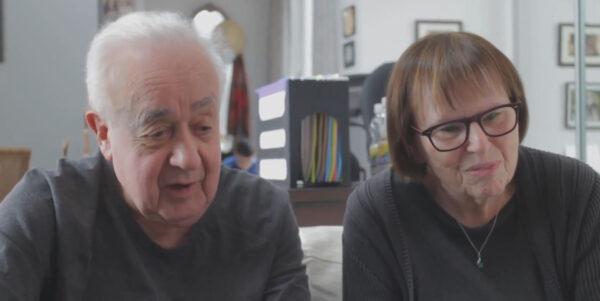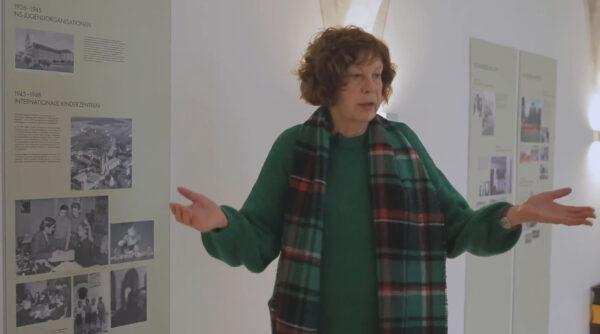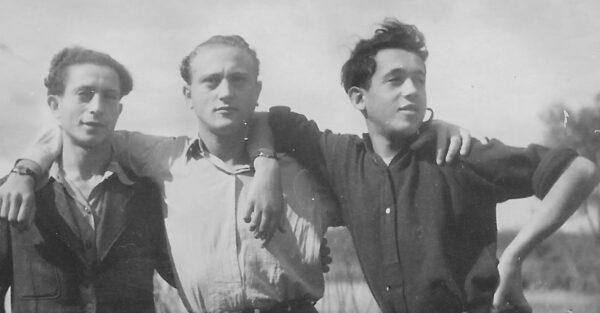Manny Drukier narrowly escaped his demise during World War II by jumping from a “death train” as a teenager and managing to find refuge at a home for orphans. Produced by Long Trek Home Productions, the 2020 Holocaust documentary, “Finding Manny,” is the almost hour-long real-life story of a kind-hearted, yet strong, Polish-Jewish Holocaust survivor. It’s an inspirational film about his return to a painful time in his past in order to help a new generation of children.
The film begins with Manny talking about his time at the children’s school in Germany, called Kloster Indersdorf. We also get to hear from some of his family members, including his wife Freda.

Eventually, a German Holocaust historian named Anna Andlauer who is determined to track down as many survivors of the school as she can, reaches out to Manny. Anna hopes that if Manny travels to the school in Indersdorf (now a grade school) and speaks to the children there (and those from the surrounding villages), it will enable them to better understand the Holocaust.
But Manny’s memories from the years of living in concentration camps understandably hold a dark place in his psyche—so much so, that he has never even talked to his family about that period of his life, let alone strangers. He is initially resistant to the idea, and the first part of the movie becomes a question of whether or not Manny will face the pain of his childhood in order to help others.

The film travels back and forth from the present day, to old documentary footage of the wide-scale persecution of the Jewish people during World War II, and is adeptly narrated by Stephen Baldwin.
Manny’s wife Freda is of the mind that her husband should travel to Germany in order to face his past and help the local children understand what happened during the Holocaust. Throughout the film, Manny’s various family members talk about their perspectives of their youth with Manny, and of his life’s journey. He eventually feels compelled to make the trip to Germany.
The family decides to travel to Poland for the first time together, in order to rediscover their roots, as well to see each of the places Manny’s parents and siblings used to hide from the Nazis, and where they were later shipped to. The film also reveals how the Germans first set up numerous Jewish ghettos in 1941, and later, how they decided to mass liquidate all Jewish people in 1944.

An apt correlation is also made between what Jews went through During World War II and the more recent persecution Falun Dafa practitioners have experienced at the hands of the Chinese Communist Party (CCP).
Despite the crushing trauma Manny went through, he remained an optimistic person throughout his life—always trying to look at the bright side of things. This leads to the film to ultimately being an uplifting story of a man who faced incredible odds and not only survived, but later, thrived. Indeed, Manny holds no ill will toward any of the German or Polish people he encounters. To him, individuals are just that and shouldn’t be grouped in with the negative deeds of others. Likewise, he says that he feels no entitlement because of his past and is not a victim.
“Finding Manny” is a sometimes heart-wrenching biopic that is highly inspirational in the end. It’s a film that strikes the right moral tone without becoming sanctimonious. Just be aware that there is some strong content in the form of footage of the bodies of deceased Jews being dumped into mass graves, as well as of hangings, so parental guidance is recommended.
-






